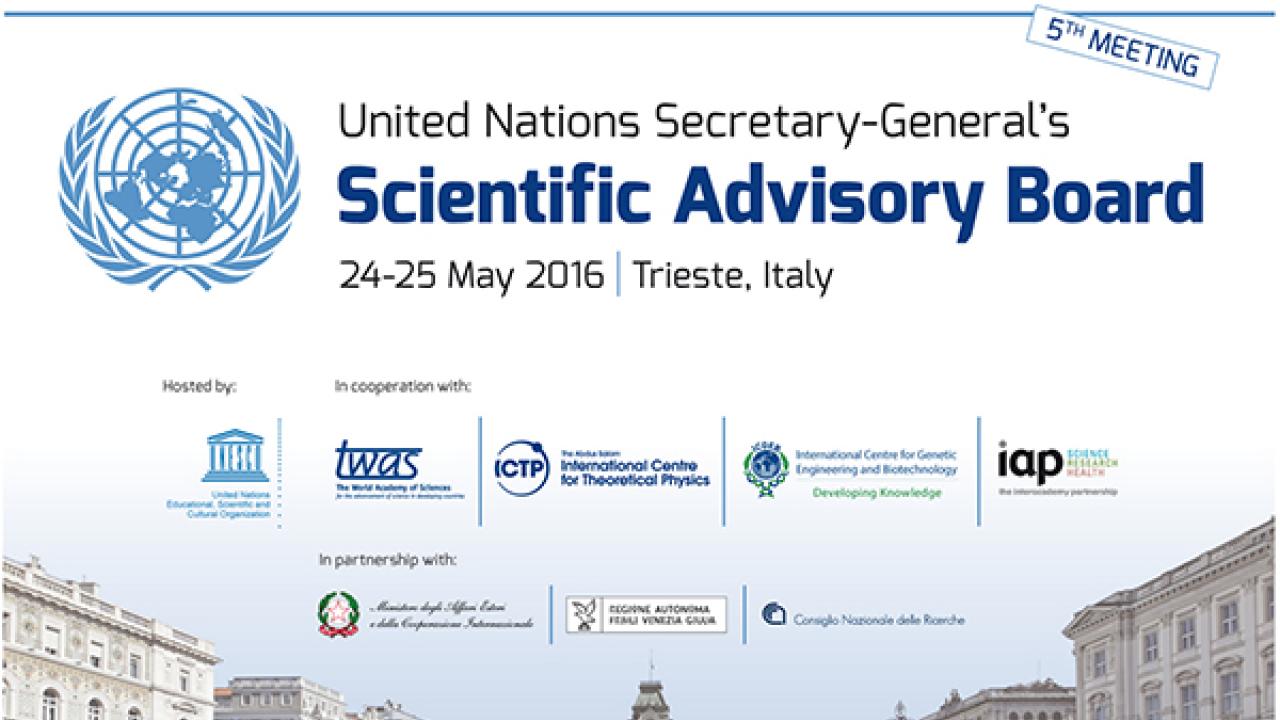
ICTP and three other scientific institutes in Trieste hosted a major United Nations conference on 24 and 25 May that attracted leading scientific experts who have been tasked to provide advice to UN Secretary-General Ban Ki Moon.
See photos from the event on ICTP's Flickr page
The 25 elite scientists of the UN Secretary-General's Scientific Advisory Board (UNSAB) are tasked to provide insights and recommendations on the crucial role of science in achieving the Sustainable Development Goals (SDGs) that were adopted by the United Nations in the late 2015.
The Board focusses on climate change and climate induced risks, local and indigenous knowledge systems as enablers of sustainable development, as well as food security and health. The Trieste meeting provided an opportunity to initiate a process of reflection on science consultation mechanisms for the United Nations system.
The preliminary conclusions of the meeting were discussed at a High-Level Open Session on "Strengthening Scientific Human Capacity in Developing Countries"; a recording of the meeting is available on ICTP's YouTube channel (click here for Italian version). The Session featured remarks by representatives of UNESCO, the Italian Government, and international science organizations based in Italy, and was moderated by Luigi Amodio, director of the science museum Città della Scienza in Naples.
The Scientific Advisory Board of the UN Secretary-General seeks to inform the United Nations’ work by providing advice on science, technology and innovation for sustainable development. The Board brings together 25 eminent scientists from all regions of the world and aims to provide a complete picture of scientific needs to face global challenges. It will present its conclusions by the end of the year. UNESCO hosts the secretariat of the Board.
This 5th meeting was hosted by the Government of Italy and four international science organisations based in Trieste: the Abdus Salam International Centre for Theoretical Physics (ICTP), The World Academy of Sciences for the advancement of sciences in developing countries (TWAS), the InterAcademy Partnership (IAP) and the International Centre for Genetic Engineering and Biotechnology (ICGEB).
Related information:
- UNESCO Media Advisory (English)
- UNESCO Media Advisory (Italian)
- Scientific Advisory Board of the UN Secretary-General
- UNSAB members













